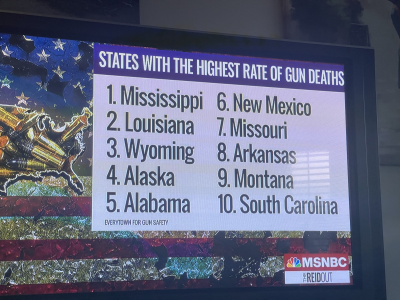Just as it is an offense to not have car insurance, the same approach should be applied to the ownership of firearms. And if you don’t have insurance, you can’t buy a gun.
Under such a law, for example, a person with no previous convictions and who only uses his or her firearm to hunt in a controlled environment would pay a low premium. On the other hand, those who have a domestic violence conviction would see premiums skyrocket. Such a law would likely lead to decreased legal gun ownership, thanks to expensive barriers to entry and possibly even coverage denials—especially for the very people in whose hands guns could be most dangerous. If you shoot yourself in a hunting accident, you could claim, and if you shoot another, they or their families could make a claim. Under the current system, the families of children murdered in mass shootings have to try to make claims against schools or local districts, which are largely immune.
Premiums would be lower for those who undergo regular training sessions, attend periodic mental health assessments, or keep only certain categories of firearms. This law would also have the collateral benefit of pitting the insurance lobby against the NRA, with the former working tooth and nail to ensure it wouldn’t be forced into making payments to the families of victims of school shootings.
For example, mental health checks on the purchase of a new weapon are essential, but implementation outside of the major retailers or in the second-hand market might prove problematic. Further, a single check at the outset does not protect against those who already have a gun or later onset and progressive mental illness. Firearms insurance companies would be able to build policies with lower premiums for those willing to undergo regular mental health checks. Also, underwriters would demand enhanced oversight for those who have a history of being prescribed antidepressants and certain drugs, such as Ritalin and Adderall. There are
multiple studies indicating that long-term dependency or withdrawal from both drugs can lead to delusions, anxiety, paranoia and agitation, all of which pose underwriting risk.


 dude had the nerve to blame the system for making it "too easy" for him to get the gun
dude had the nerve to blame the system for making it "too easy" for him to get the gun

































